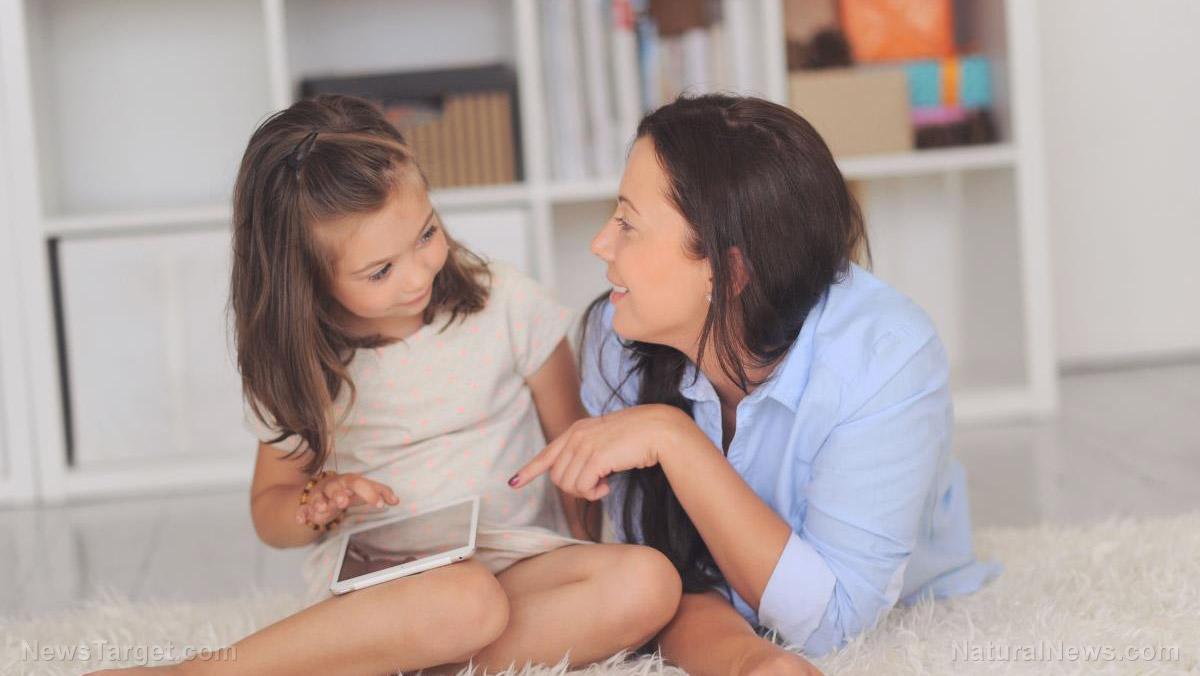Are screens as bad for toddlers as they say? Study says yes
09/07/2019 / By Zoey Sky

Story time is an important part of your child’s development because it doesn’t just promote parent-child bonding time, it also helps promote literacy. However, according to the results of a study published in the journal Pediatrics, it may be better to read to kids from printed books instead of e-readers (electronic readers).
Jennifer Dorety, a preschool teacher from New York with a degree in early childhood education, shared that in her 17 years of experience as a teacher, she only failed once when reading a book to her students. Dorety noted that her students seemed to have trouble retaining information and answering questions after she read to them from an e-book, a problem she’d never encountered before when reading from a printed book.
She noticed that when she used an e-book, her students wanted her to move on to the next page as fast as possible. Her students also didn’t interact with her as the reader. These signs convinced Dorety that it is better to read to her students from printed books.
Printed books vs. e-readers
The Pediatrics study implies that this isn’t an isolated case. In the study, researchers observed 37 parent-and-toddler pairs. They recorded the adult participants as they read to their children using three book formats:
- Electronic
- Enhanced electronic (with sound effects or animation)
The researchers observed the number and types of interactions the parent-toddler pairs engaged in and found that the parents were more engaged when they were reading physical books. The adults also read more of the story within the allotted time of five minutes when they were using printed books.

Meanwhile, the children talked more about the physical books the adults were reading from. Both parent and toddler also showed more signs of non-verbal bonding while reading physical books.
Dr. Tiffany Munzer, one of the authors from the University of Michigan Medical School‘s Department of Pediatrics, explained that shared book reading is a crucial developmental activity for families with young children. Munzer and her colleagues conducted the study because they wanted to know if parents and children would interact differently when using e-books instead of physical books.
E-readers are more distracting than printed books
Munzer believes that e-books not only decrease engagement, they also negate some of the benefits of a shared reading experience.
Doherty agrees and thinks that children have trouble paying attention to an e-reader because the combination of bright colors and noises from the device diverts the children’s attention from the story. A gadget can also make children want to move things along faster, which hinders them from understanding the information being relayed to them by the reader. (Related: Wired and tired: Screen time linked to downward spiral in kids.)
According to Munzer, the interaction between parent and child while reading is very important. Activities like reading are crucial for a child’s brain development, which occurs via positive relationships with their guardians.
The engagement involved in reading encourages child learning of language. It also helps a child develop problem-solving abilities as well as a good relationship with their parents or guardians.
Reading with a parent promotes a child’s imagination and curiosity. It can also help children learn to tell the difference between what is real and make-believe.
Munzer says that developing children benefit from any type of input from their parents, regardless of whether they’re using print or digital media. It just so happens that physical books are better at promoting learning than gadgets.
Sources include:
Pedriatrics.AAPPublications.org
Submit a correction >>
Tagged Under:
badtech, brain development, brain function, brain health, childhood education, children, children's health, cognitive function, computing, concentration, curiosity, dangers of screen exposure, e-books, e-readers, electronics, gadgets, Glitch, imagination, interactive screen time, internet, learning, literacy, mobile devices, non-verbal bonding, parent-child bonding, parenthood, parenting, parenting tips, printed books, reading, relationships, research, science, screen time, screens, shared book reading, story time, technology
This article may contain statements that reflect the opinion of the author





















